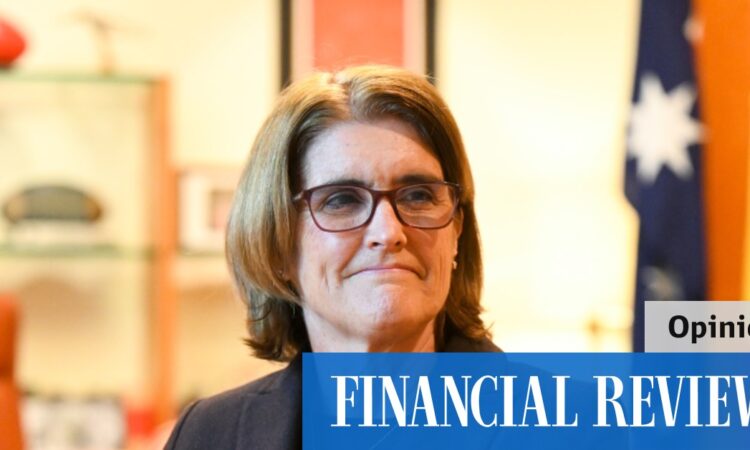
We had a taste of what that might mean with the collapse of some regional US banks earlier this year. The Federal Reserve bailed out the banks and markets settled down briefly.
Bond yields in the US have exploded recently by more than one percentage point as government borrowing rises and the Federal Reserve adds to bond supply by reversing its previous quantitative easing. This reflects the market realisation that short interest rates will need to stay higher for longer to get inflation down.
The result of conflicting US budget and monetary policies has been the US economy has not slowed as rapidly as hoped despite rising short interest rates. The labour market remains strong.
Hoping for a middle path
What happens next? Biden is not going to change US budget policy any time soon, so unlike the UK, we are stuck with loose US budget policy for some time. Congressional standoffs add more risk.
US Federal Reserve chairman Jerome Powell could keep raising short rates to slow the economy and probably cease the quantitative tightening to take some pressure off the bond market. The likely result would be unexpected collapses in financial and commercial property markets that would be less likely to be smoothly defused this time around.
At the other extreme, Powell could stop raising interest rates and accept inflation will remain higher for longer. This would risk further rises in bond yields on inflation fears and still result in unexpected collapses in financial markets.
Is there a middle path where Powell gets inflation down gradually despite conflicting monetary and budget policies, without blowing up the financial market? We should all hope so, but it is no certainty. What happens in the US will have a big impact on the world economy, unlike the UK. If the US has a hard landing so will the rest of us.
Where does that leave Australia?
As I argued previously, most nations have had short interest rates above long rates to slow their economies. We have short rates below long rates and less tight monetary policy. The evidence is growing that inflation here will remain too high, with wages picking up and petrol, rents, insurance and house prices rising. The drought and climate change policies could make things worse.
The justifications given for our weak monetary policy settings do not hold water.
The tax cuts in mid-2024 will offset the further shift of some borrowers from lower fixed rates to higher variable rates.
Wages here are growing near 4 per cent, a little below that elsewhere. Yet, our productivity collapsed over the past year by more than elsewhere. Our unit labour costs are rising rapidly and will hold up services inflation.
We should be cautious in our domestic policies until it becomes clearer how the United States economy will play out.
We have benefited from higher export prices while most other countries have suffered from higher import prices. While we have a budget surplus rather than the budget deficits elsewhere, this reflects that income boost and does not justify short rates being so low here.
Given the risk posed by the US, charting the right policy course through the potential turmoil ahead is fraught. Hamas’ attack on Israel and its potential impact on the oil market shows the danger of new shocks as well.
We should be cautious in our domestic policies until it becomes clearer how the United States and global economies play out.
We cannot afford to put policy on hold. Otherwise, rising interest rates overseas will weaken our exchange rate and push up inflation. We need to tighten monetary policy further to keep inflation here falling and increase the flexibility of the economy, rather than reducing it as some of the government’s labour market policies will do.
Although we fared better than most through recent global shocks, that cannot be guaranteed to continue. The priorities are to keep inflation in check and to improve productivity. Our strong banking sector at least gives us some protection from financial market shocks.
Reserve Bank of Australia governor Michele Bullock may face big challenges from the global economy that could make a smooth landing here difficult. Government policies must support her rather than make her job more difficult.
Ed Shann is an independent economist.





